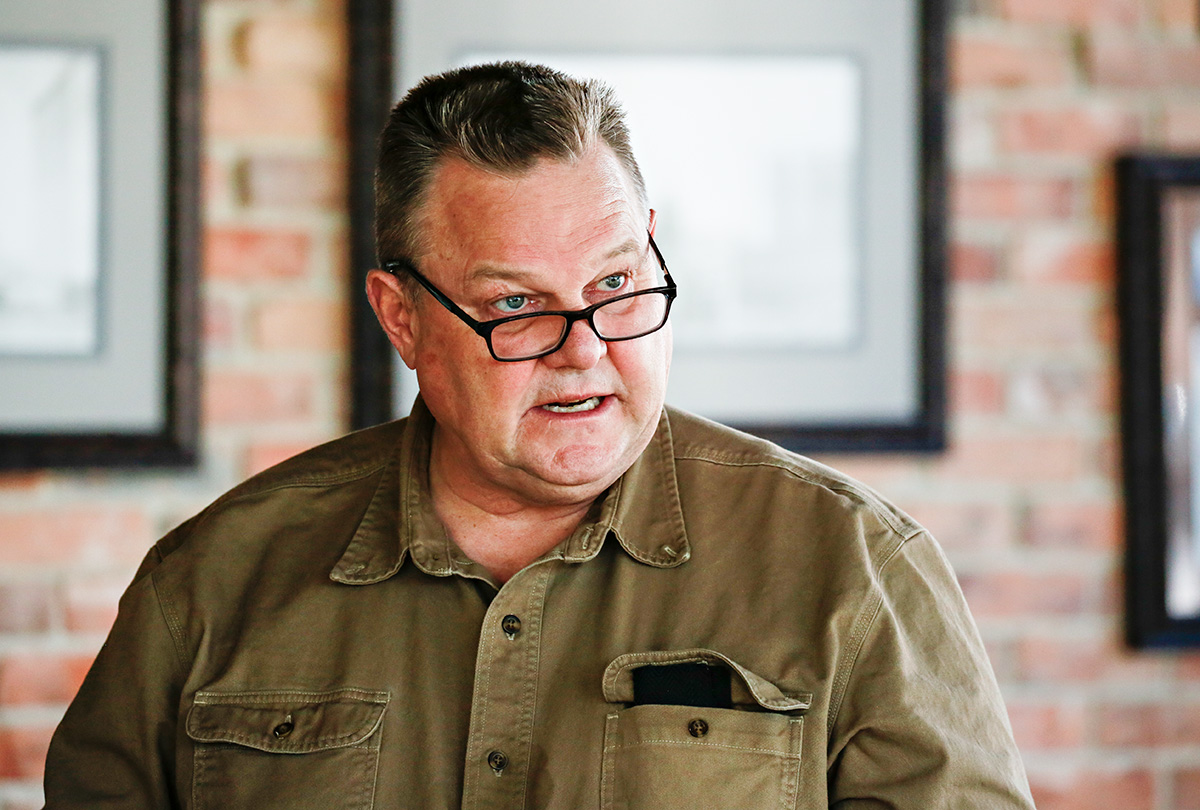Tester Touts Work on Bipartisan Infrastructure Deal
Senator worked with nine of his moderate colleagues to compromise on nearly $580 billion in new infrastructure spending
By Micah Drew
Montana U.S. Sen. Jon Tester visited Kalispell on July 9 to discuss the merits of his ongoing work to negotiate a bipartisan infrastructure deal with moderate members of Congress.
“I have been talking to folks for a good while now, on the ground here in the Flathead and across Montana, about what we need for critical infrastructure in this state, from crumbling roads and bridges to spotty broadband service to making sure that we have a electrical grid that meets the needs of our businesses,” Tester said during a press conference at Flathead Valley Community College. “You know we’re in the 21st century and we’ve been living off our parents and grandparents’ infrastructure for far too long.”
Infrastructure spending has been a centerpiece of Washington, D.C. discussions for months now as Democrats and Republicans attempt find a middle ground.
President Joe Biden released a nearly $2 trillion plan in March that included electric vehicle incentives and transportation upgrades, affordable housing and broadband spending, as well as putting aside hundreds of billions of dollars to expand in-home care and other non-traditional infrastructure areas.
Republicans soundly rejected the scope of the plan, as well as a subsequent $1.7 trillion plan, and countered with a $928 billion plan back in May. Lawmakers continued to go back and forth largely along partisan lines, even as the White House urged them to reach an agreement.
Tester, along with nine other moderate members of Congress struck a deal at the end of June for a “once-in-a-century” infrastructure package, which has approval from the president and is now in the drafting stage.
“Negotiations like this are difficult because everybody has to give a little … nobody on that committee got everything they want, but yet we all got something that we though was important” Tester said. “All I might add without burdening any taxpayer, including any Montana taxpayer with any new taxes.”
The $1.2 trillion bill includes $580 billion in new spending on traditional infrastructure such as roads, bridges, airports; water infrastructure including the elimination of lead pipes; widespread broadband access and an investment in electric vehicle charging stations.
Alongside Tester at the press conference was FVCC President Jane Karas, Joje Bars founder and pro cyclist Jess Cerra and Columbia Falls City Councilor Mike Shepard, all of whom praised Tester’s efforts and emphasized the need for infrastructure investment.
“The focus on funding broadband internet is critical to building a strong foundation for economic growth in America, especially in rural areas that will provide access to education and training opportunities,” Karas said. “During the pandemic, we learned that many of our students did not have access to any type of internet, thereby really impinging their ability to get an education and to complete their programs. This broadband internet will really make a difference in the ability of students and others to continue their education or to be engaged in the workforce.”
The bipartisan negotiators included Sen. Mitt Romney (R-Utah), Sen. Joe Manchin (D-WV), and Sen. Rob Portman (R-Ohio). Tester mentioned an “interesting fight” over a gas tax that was ultimately removed from the funding structure, and instead the senators opted for redirecting unused coronavirus aid and unspent unemployment benefits, increasing IRS enforcement and utilizing infrastructure privatization to cover the cost of the legislation.
The initial framework was announced just before Congress recessed for the July 4 holiday and once the session resumes, Tester said Senate Majority Leader Chuck Schumer expects to bring the bill to the Senate floor on July 19, giving senators and staff roughly a week to “manipulate, massage and change” the details of the text.
“That’s a very aggressive deadline,” Tester said. “But we’re known in Washington, D.C. to do a lot of talking and not getting a lot done so this is going to force us to get some stuff done.”